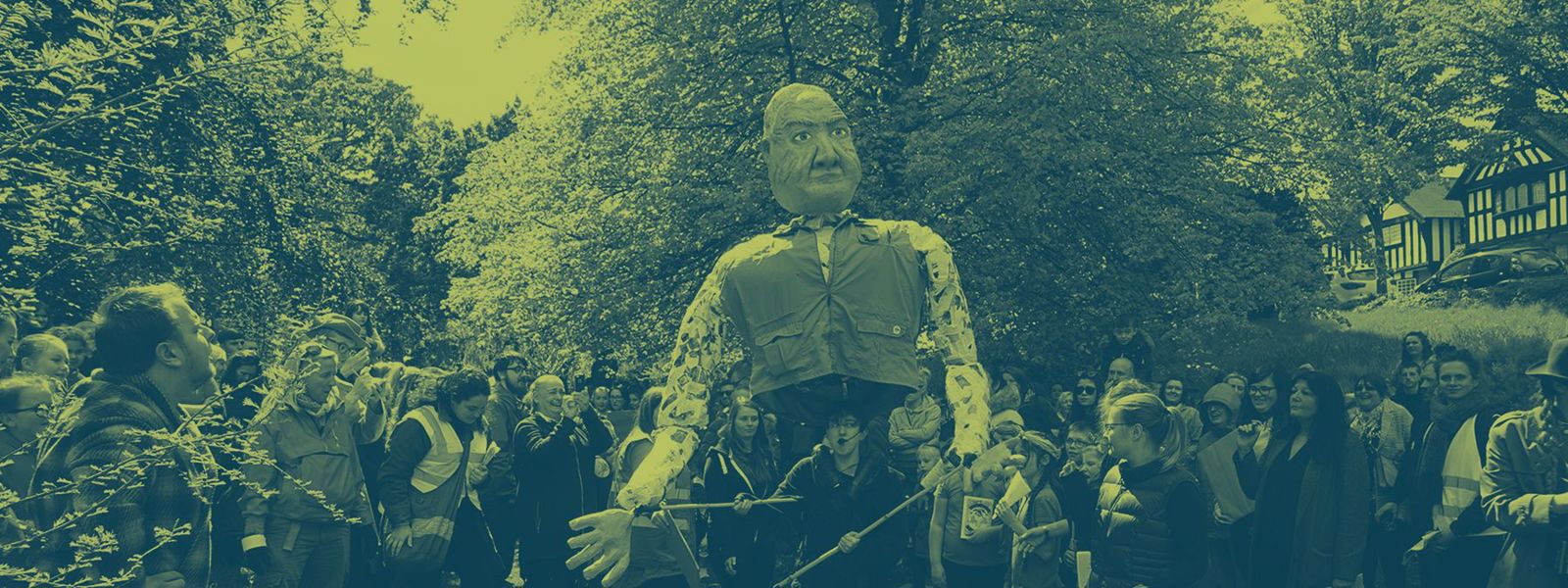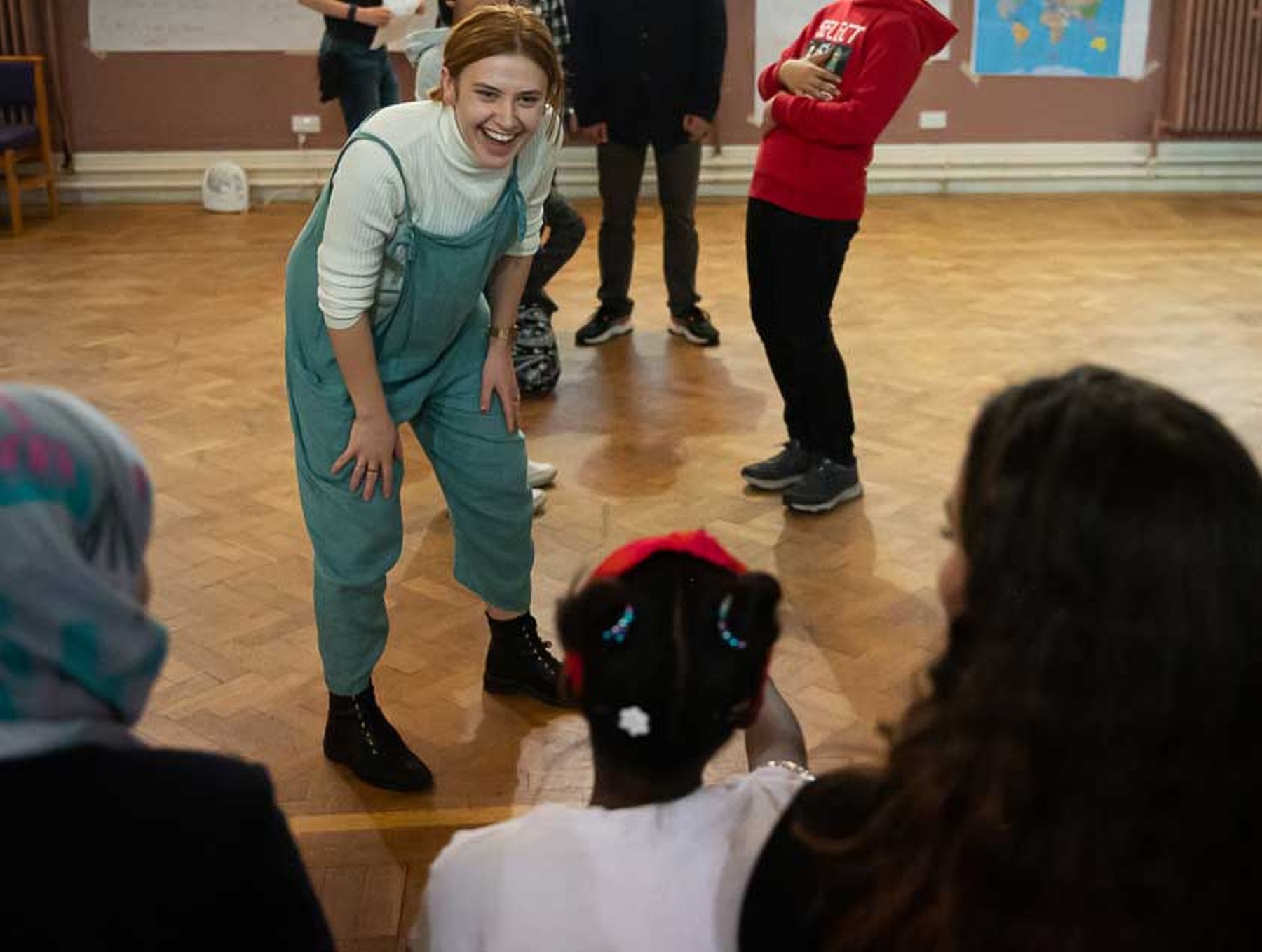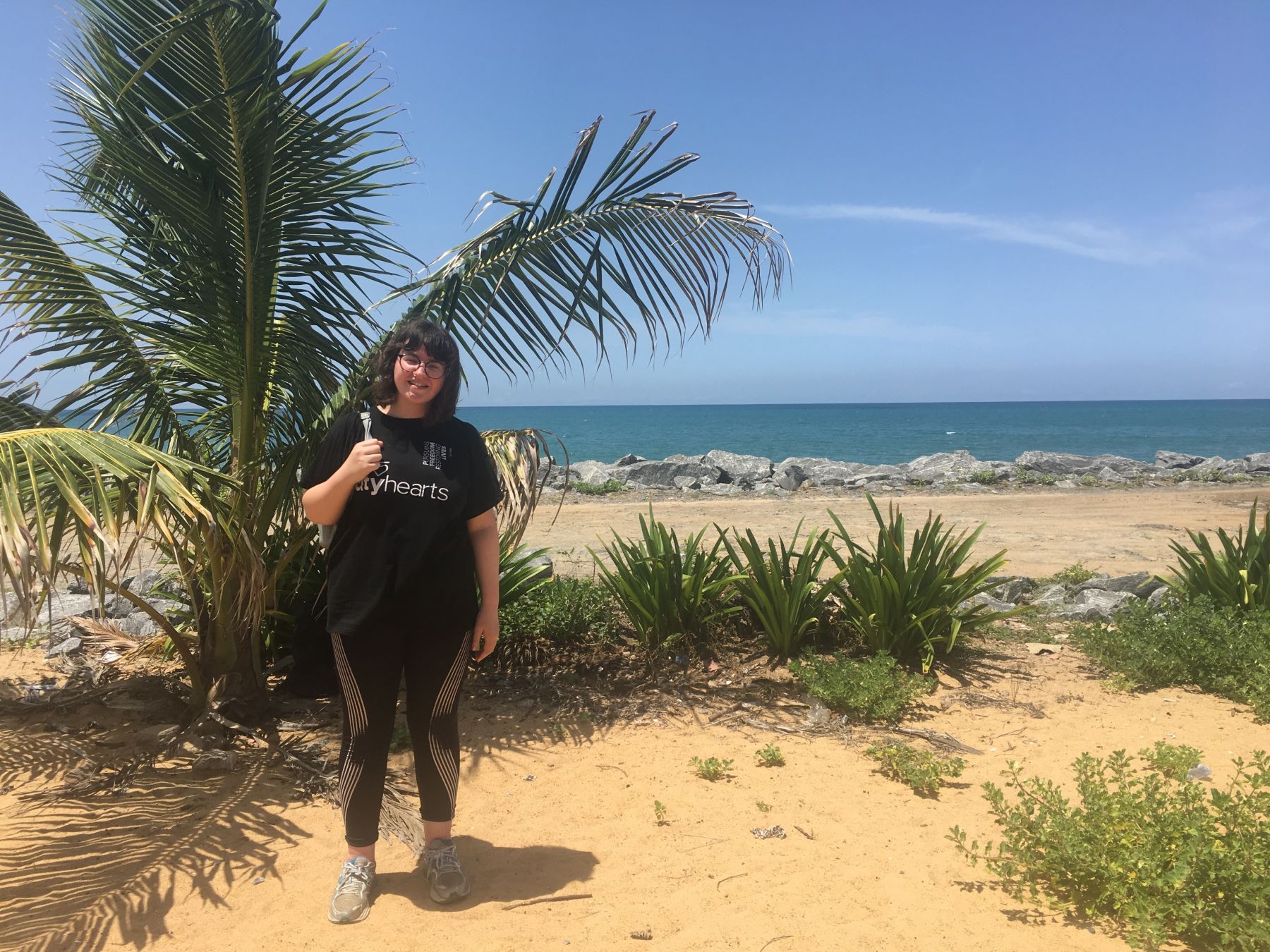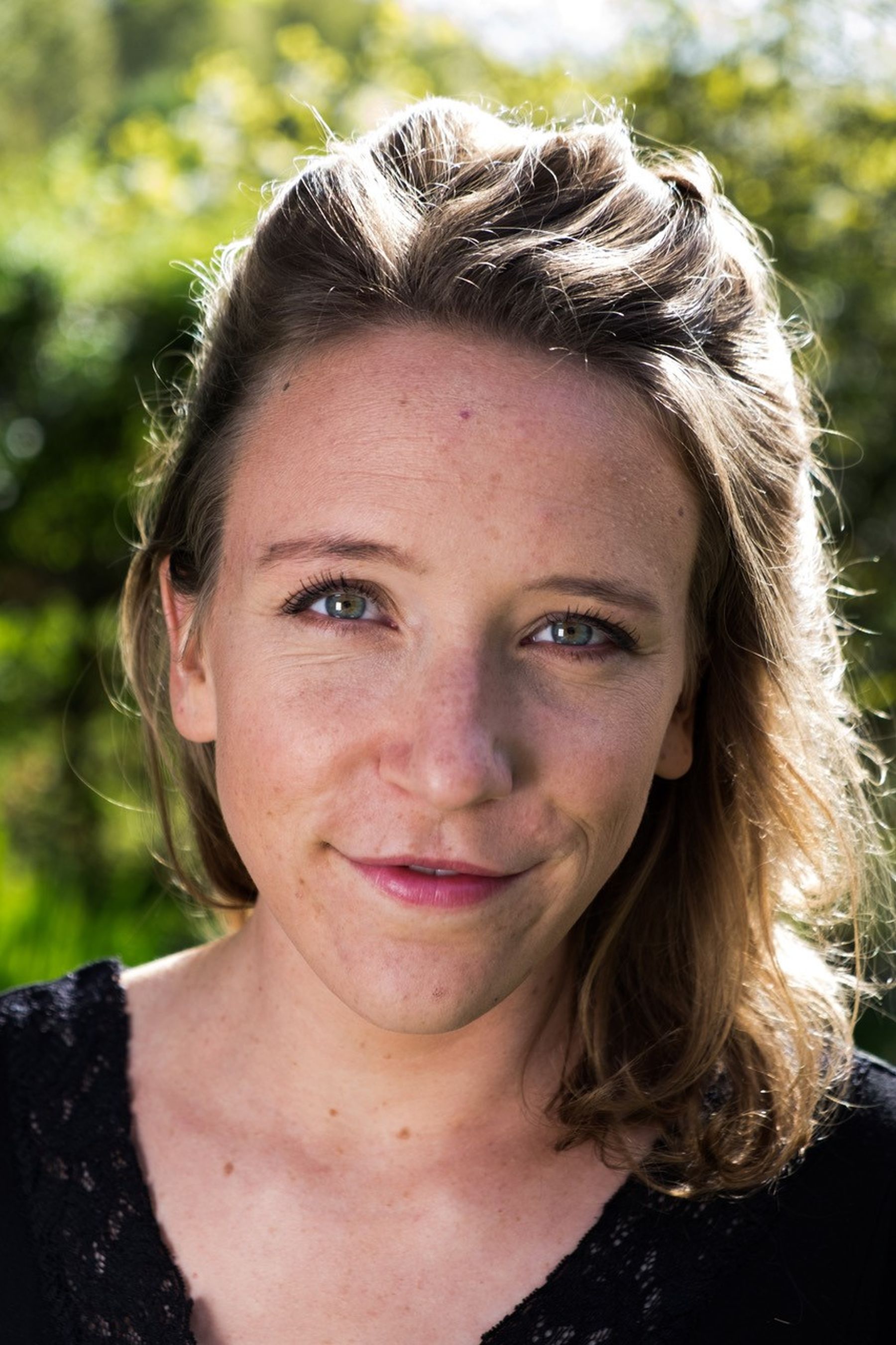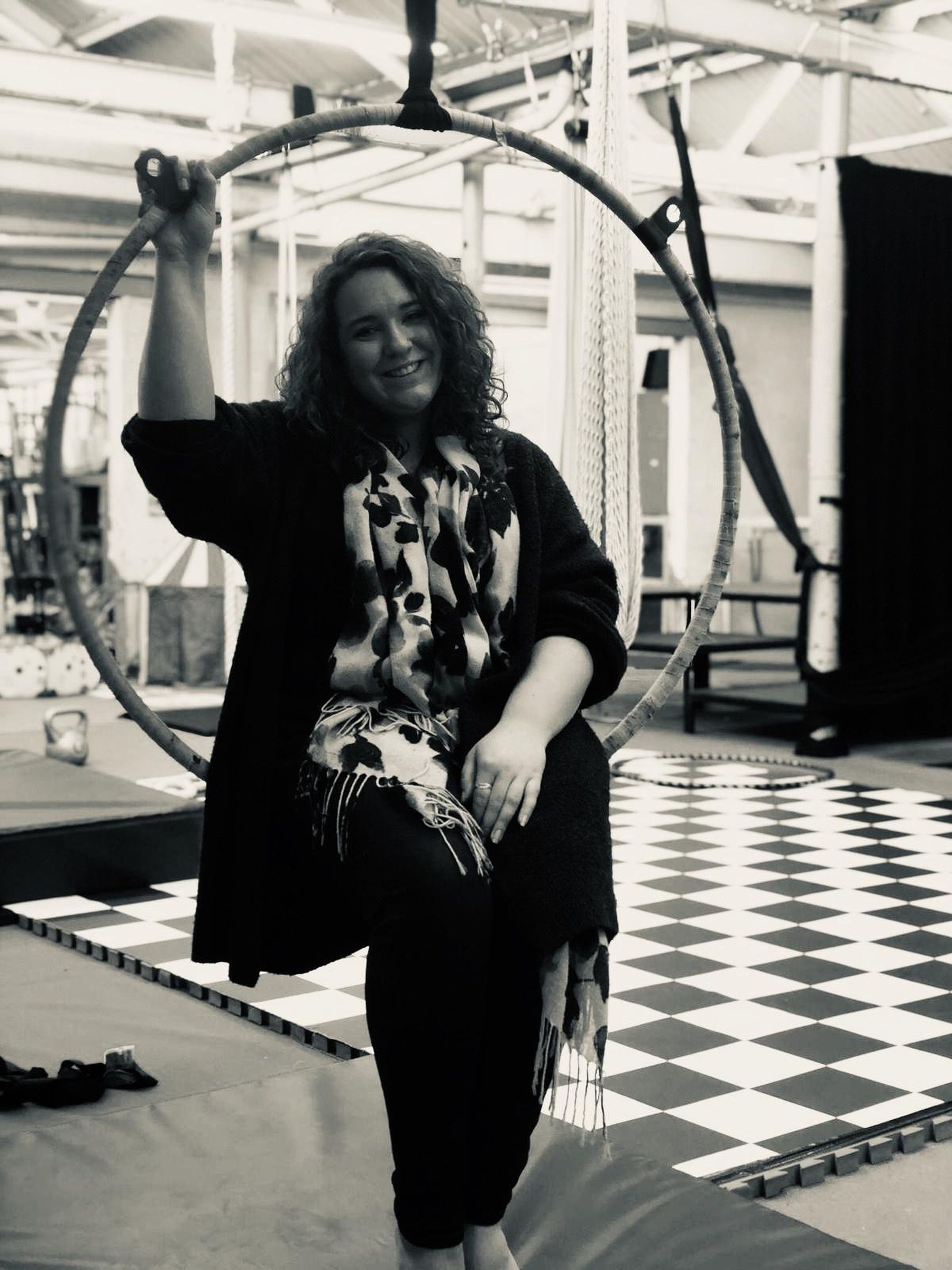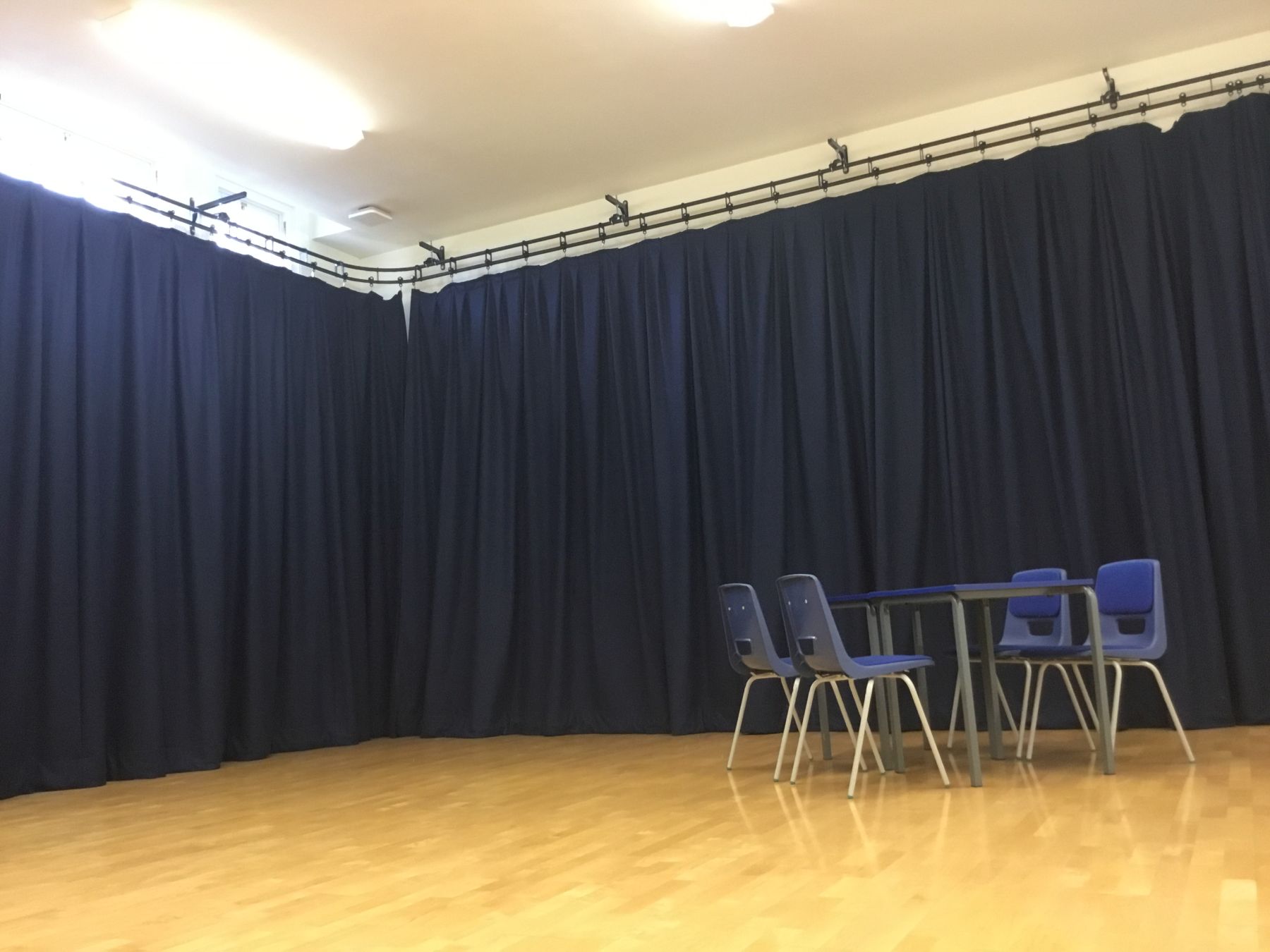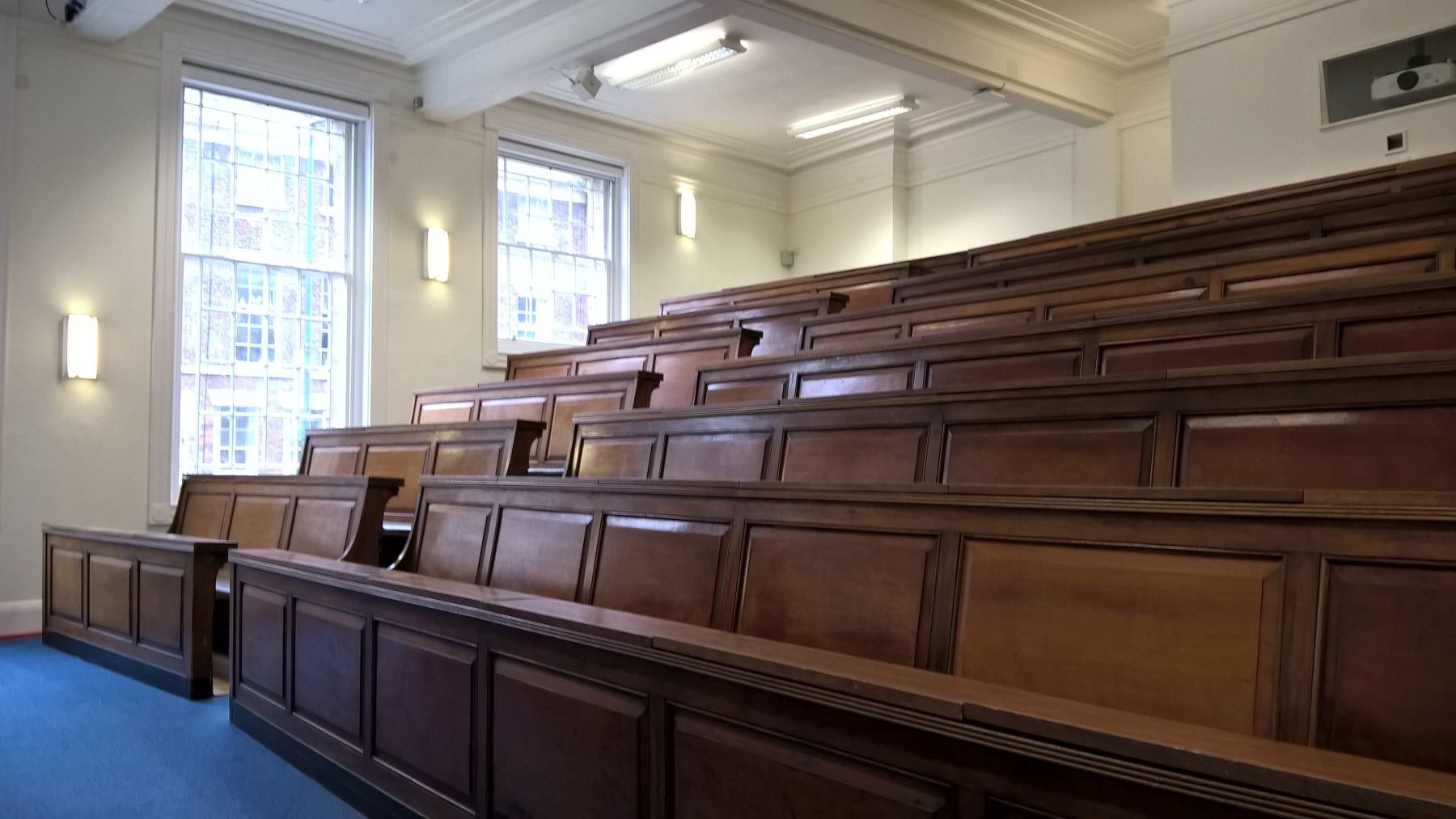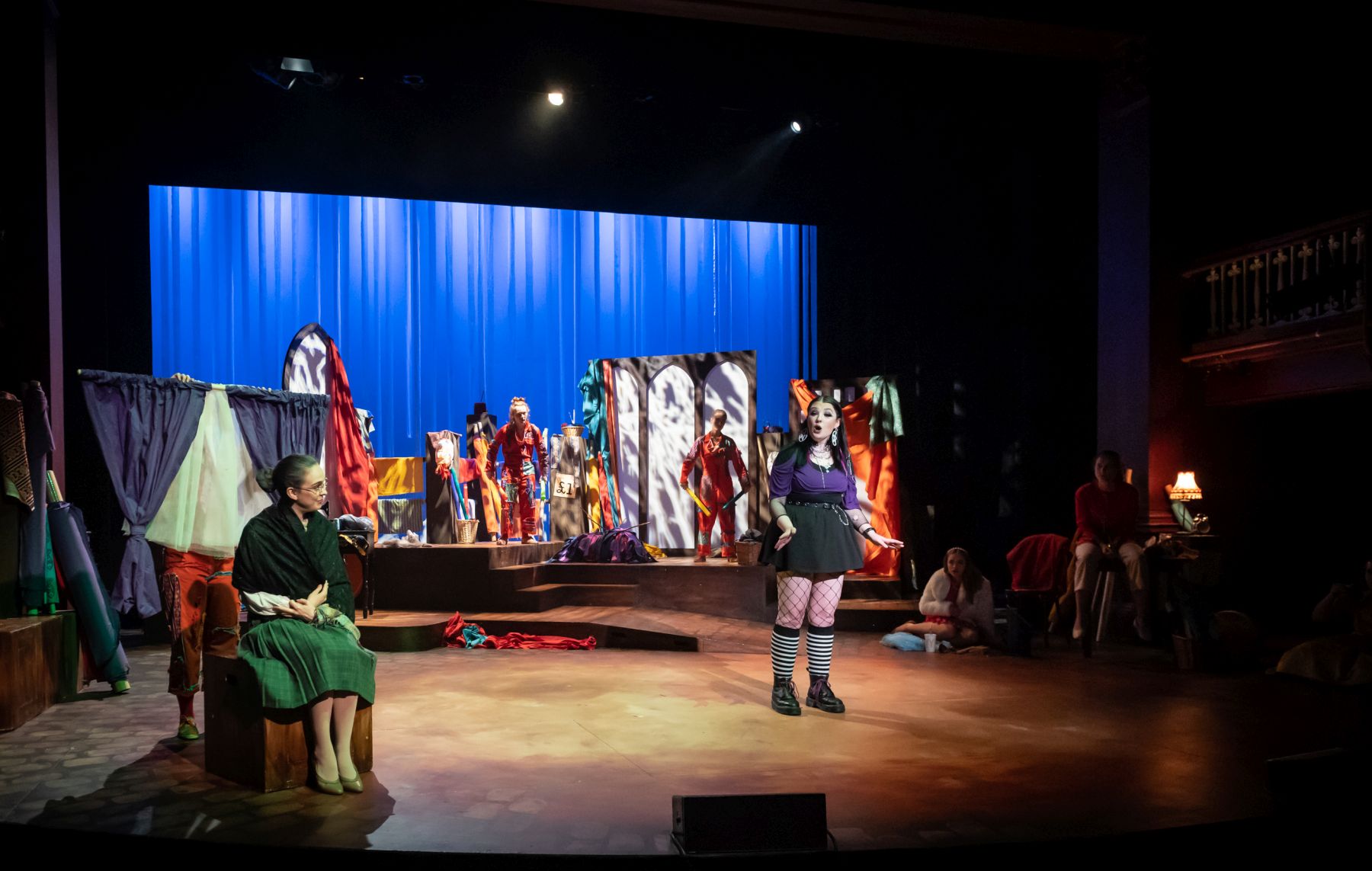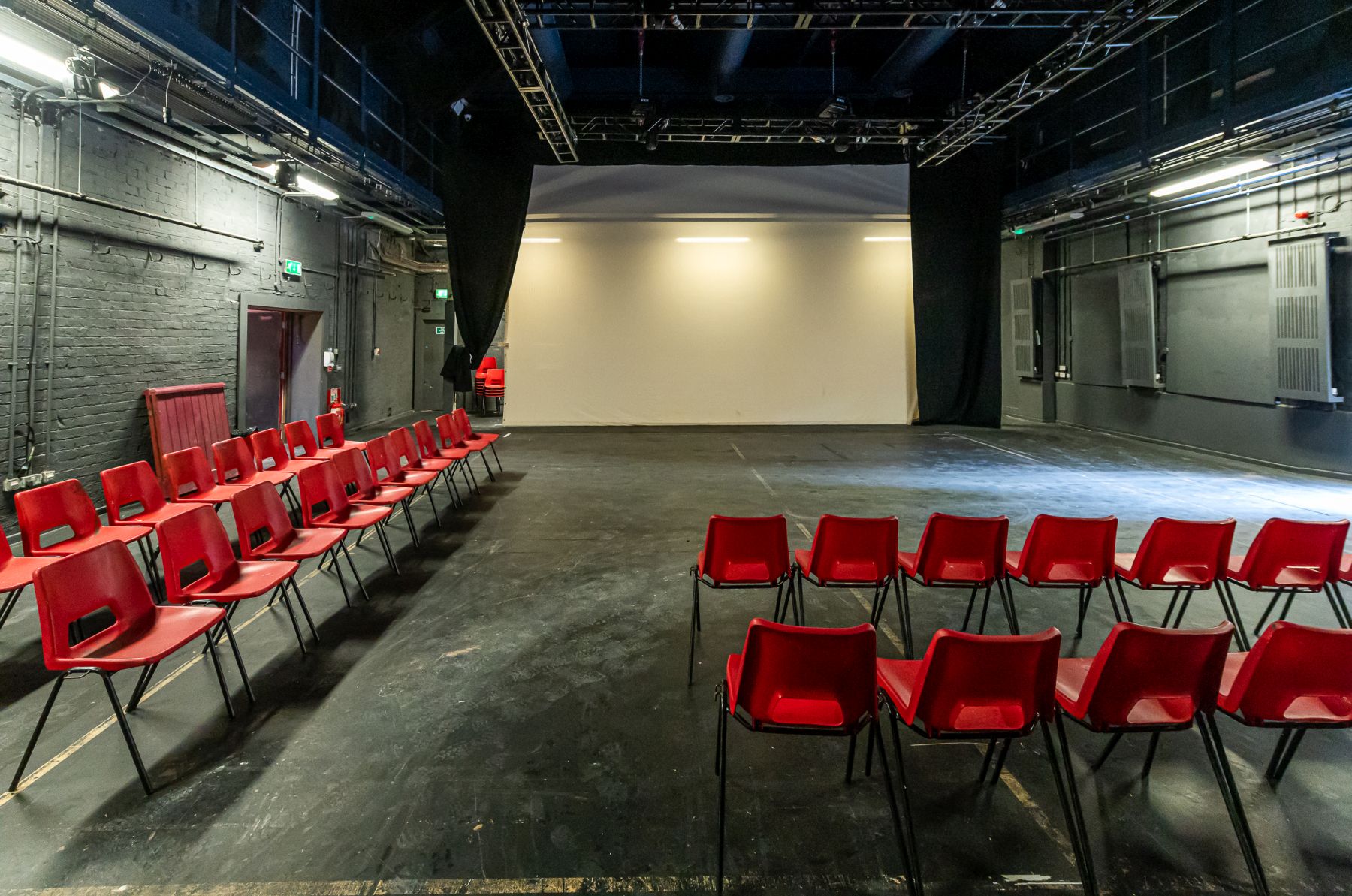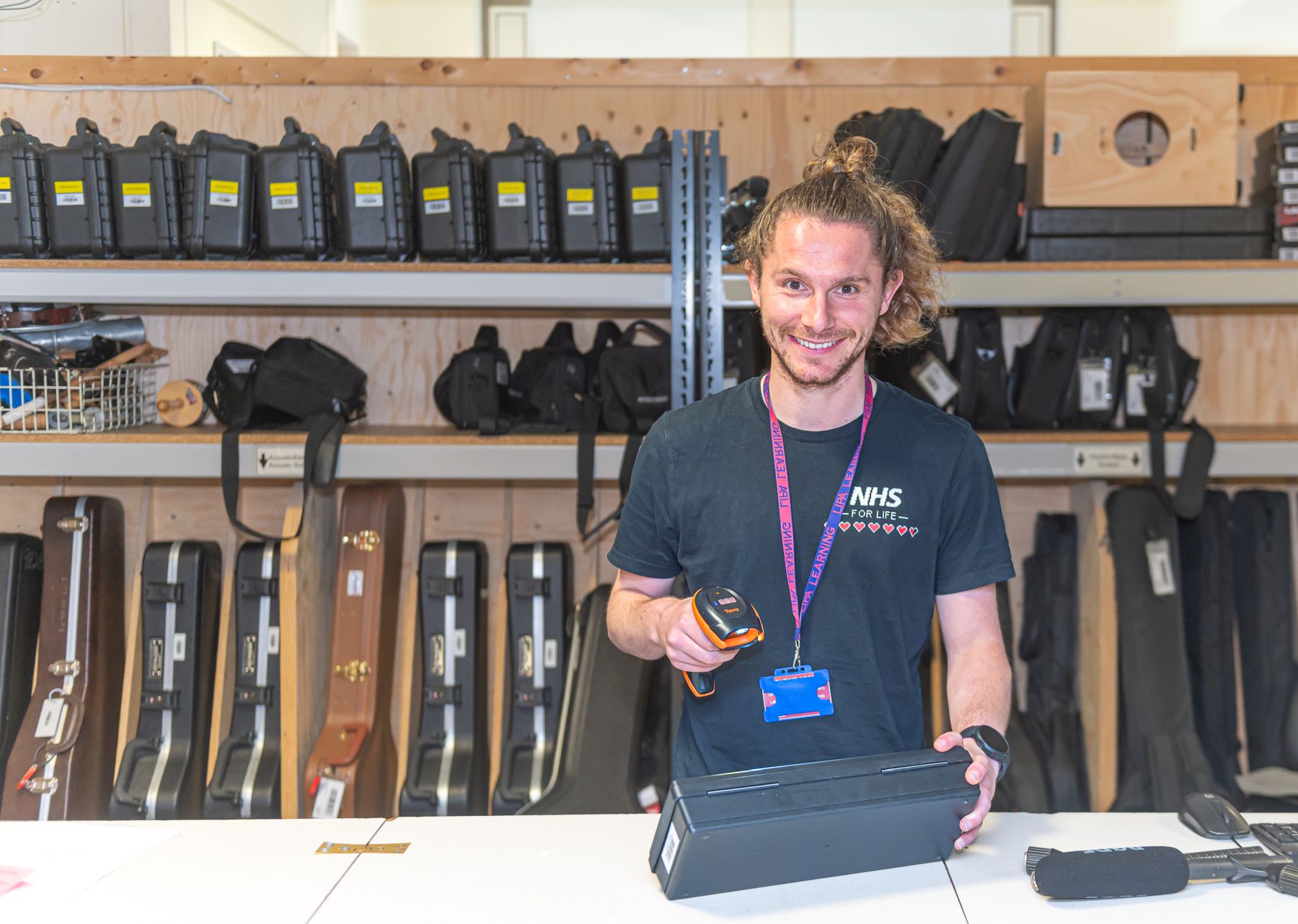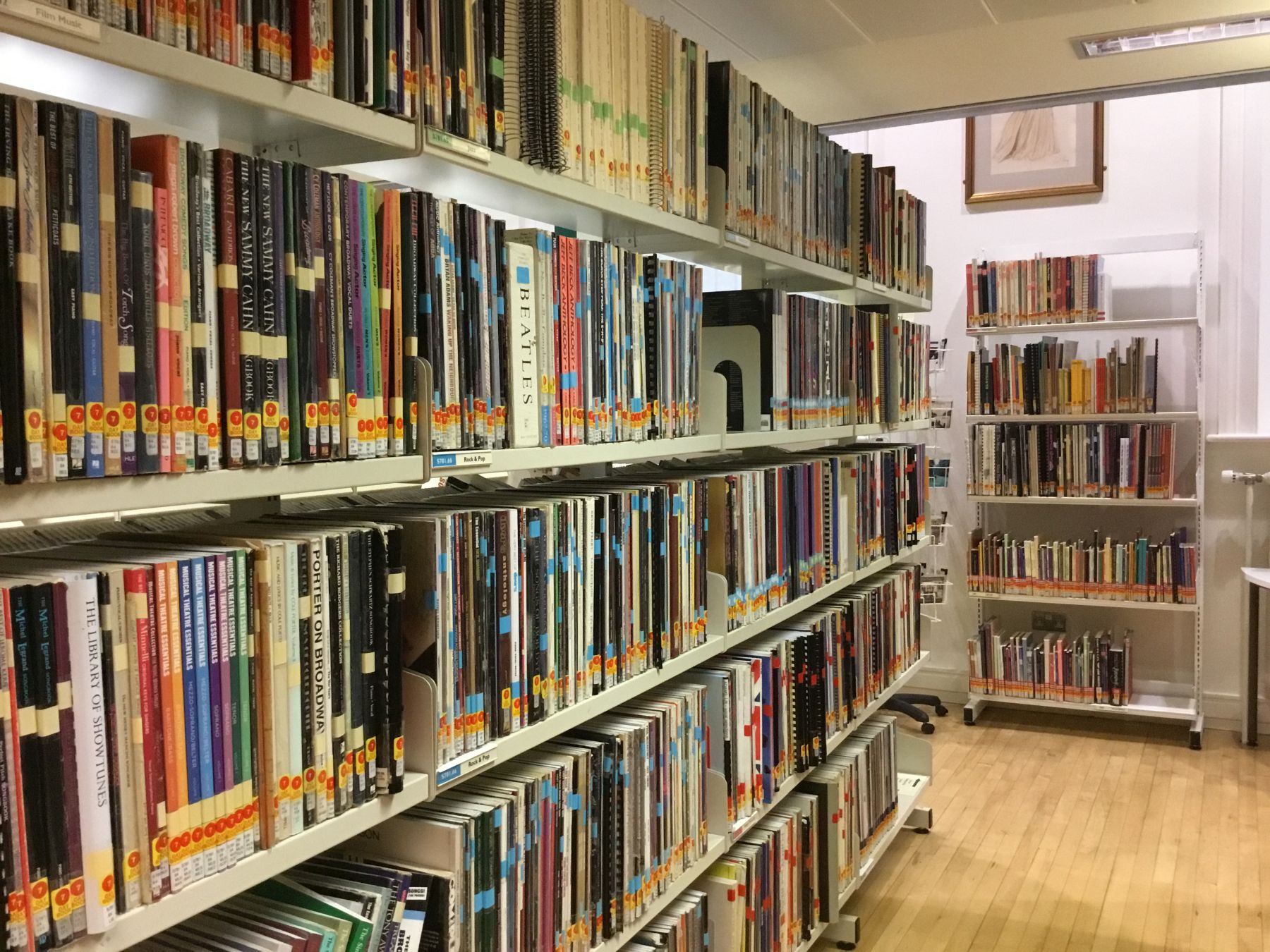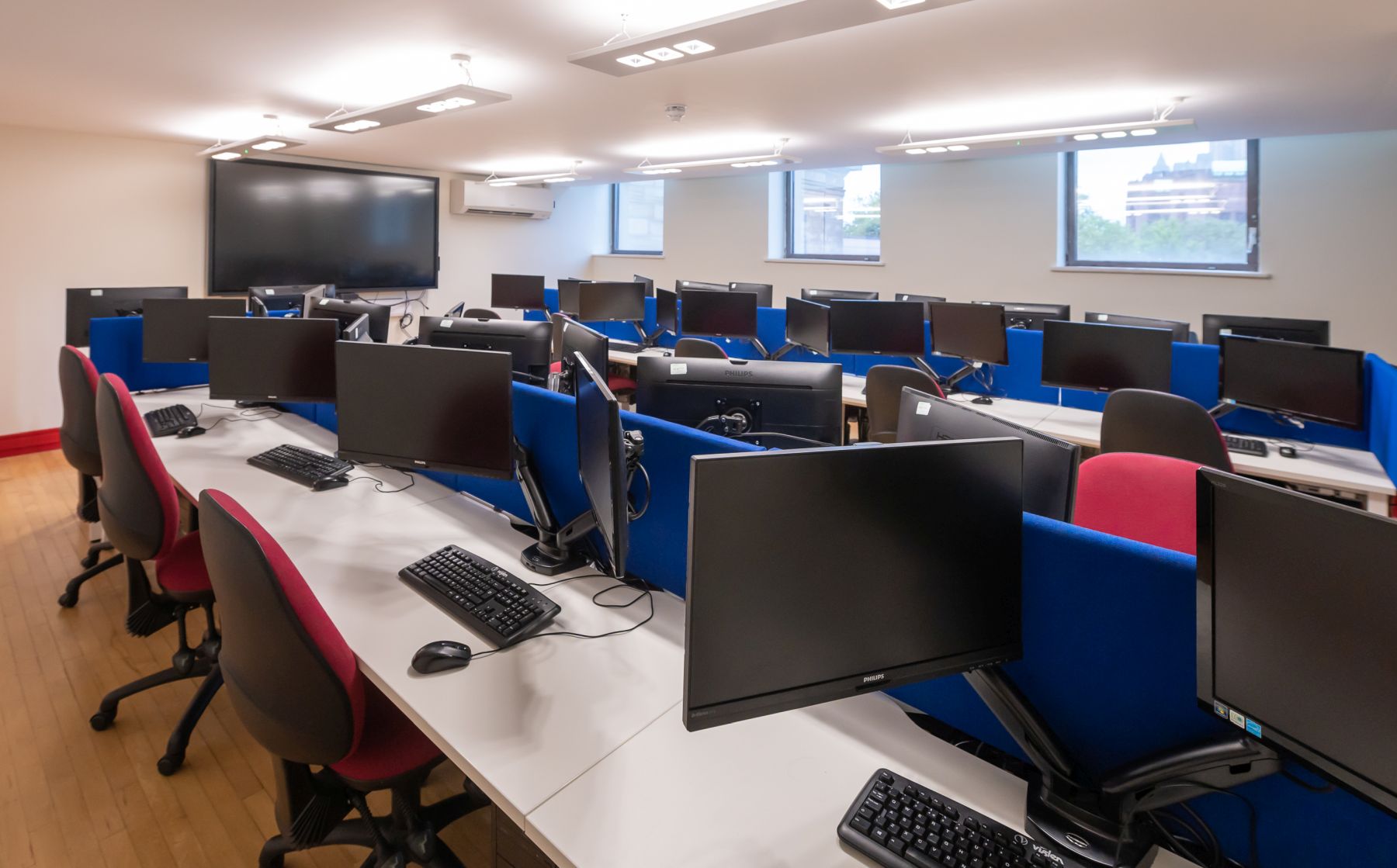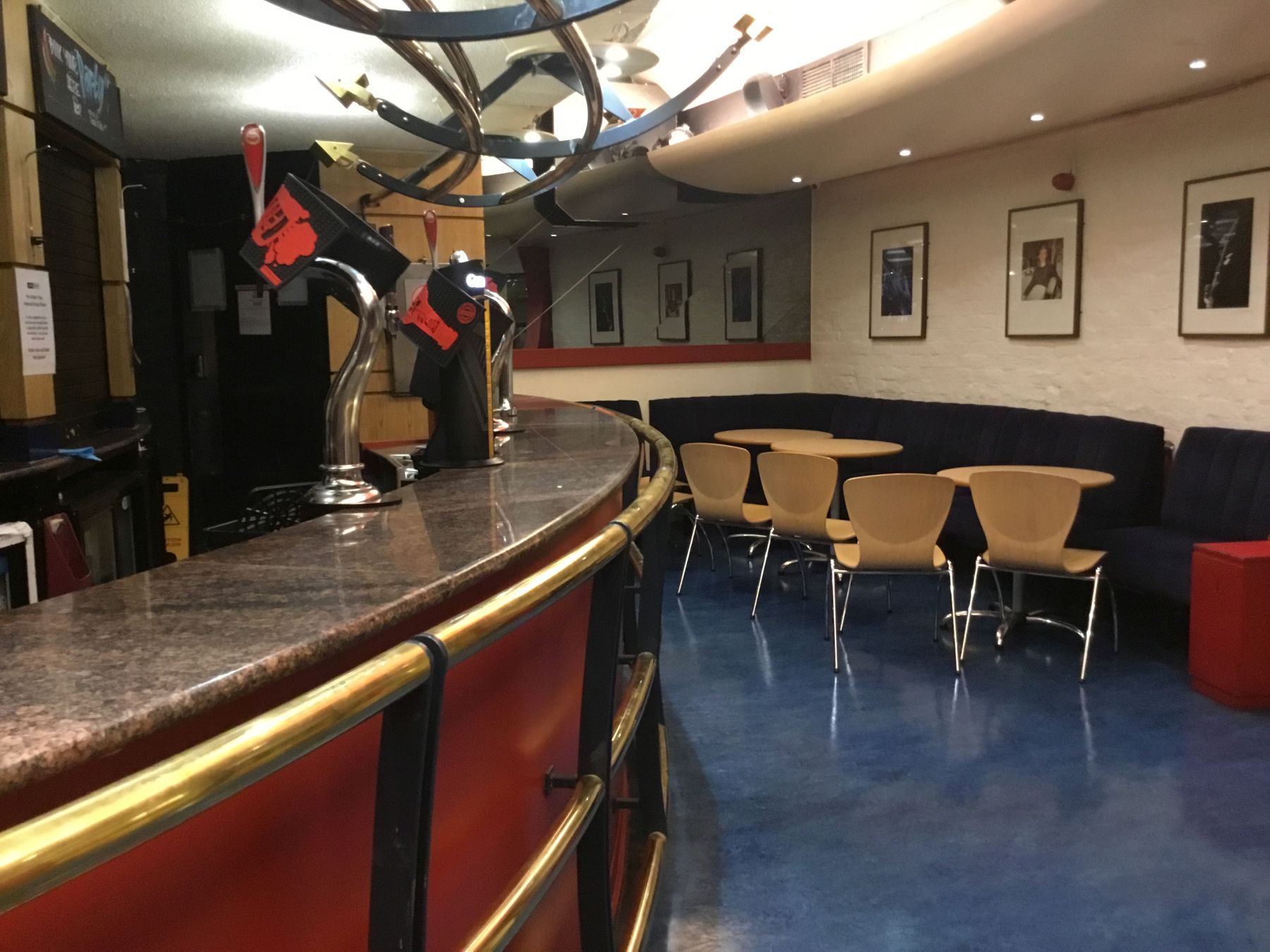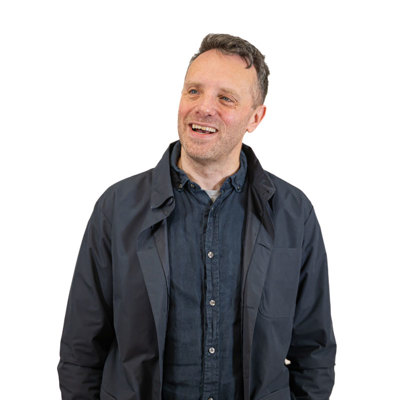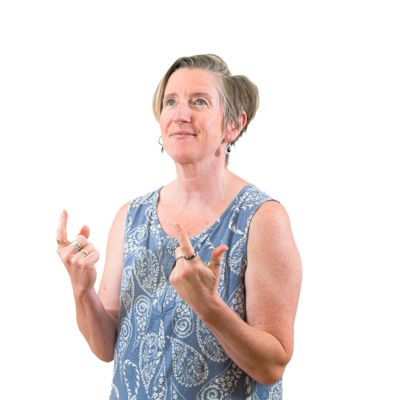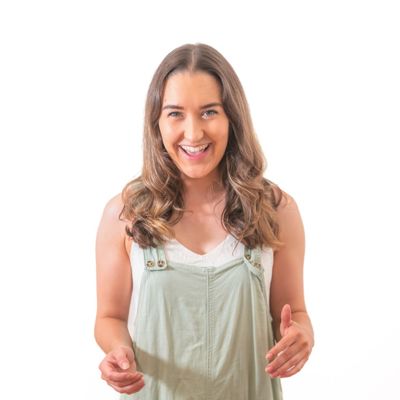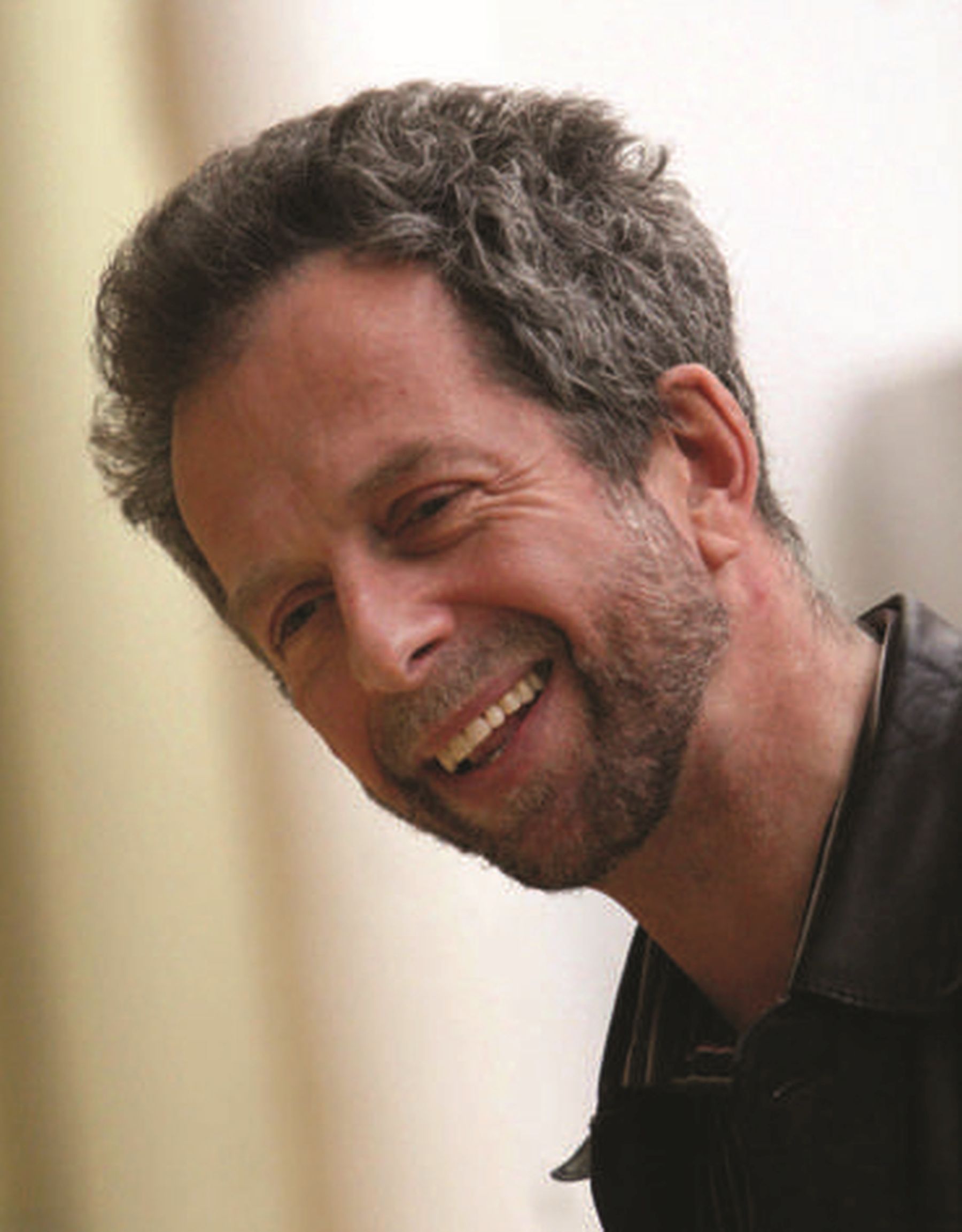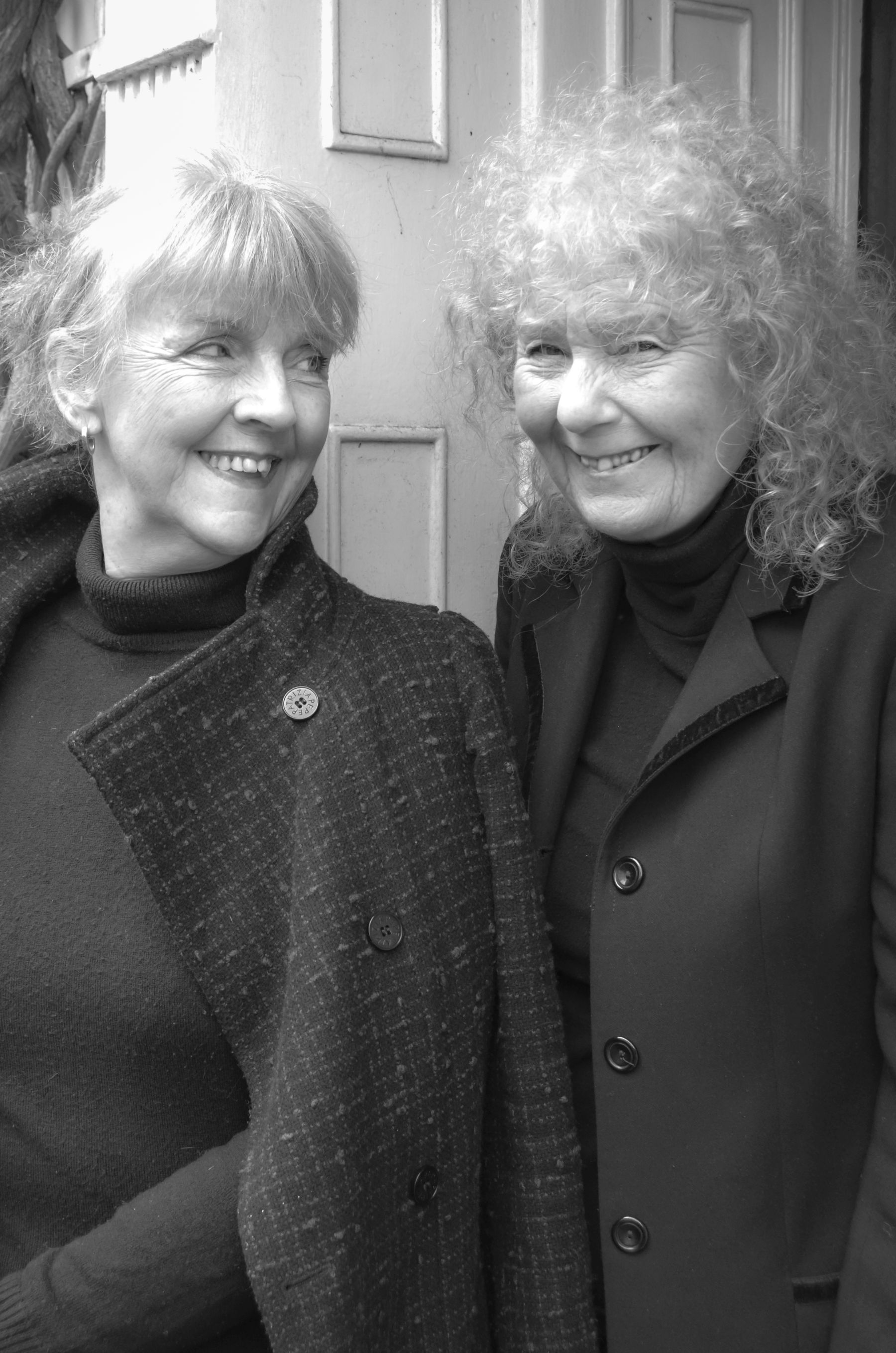Course
Overview
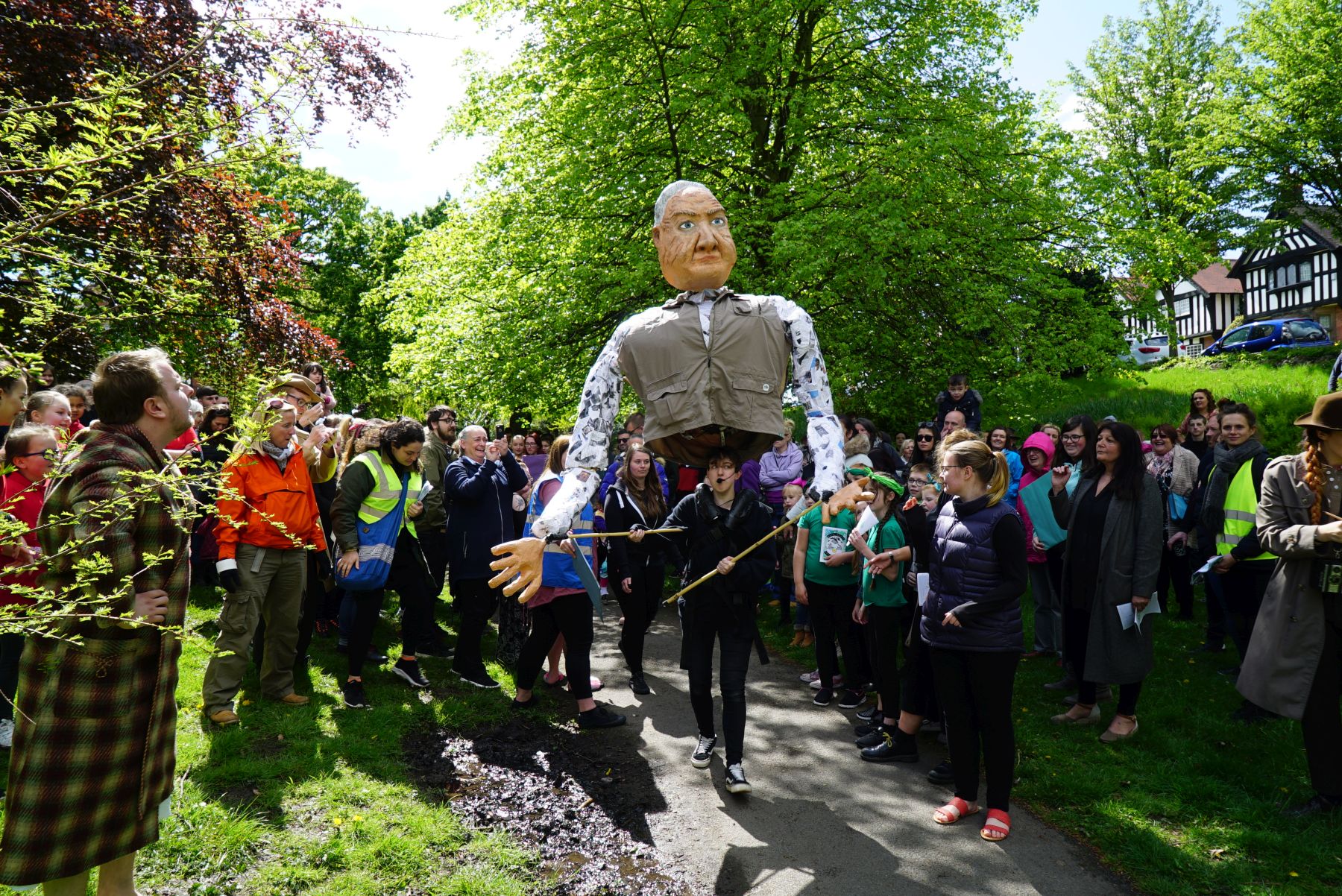
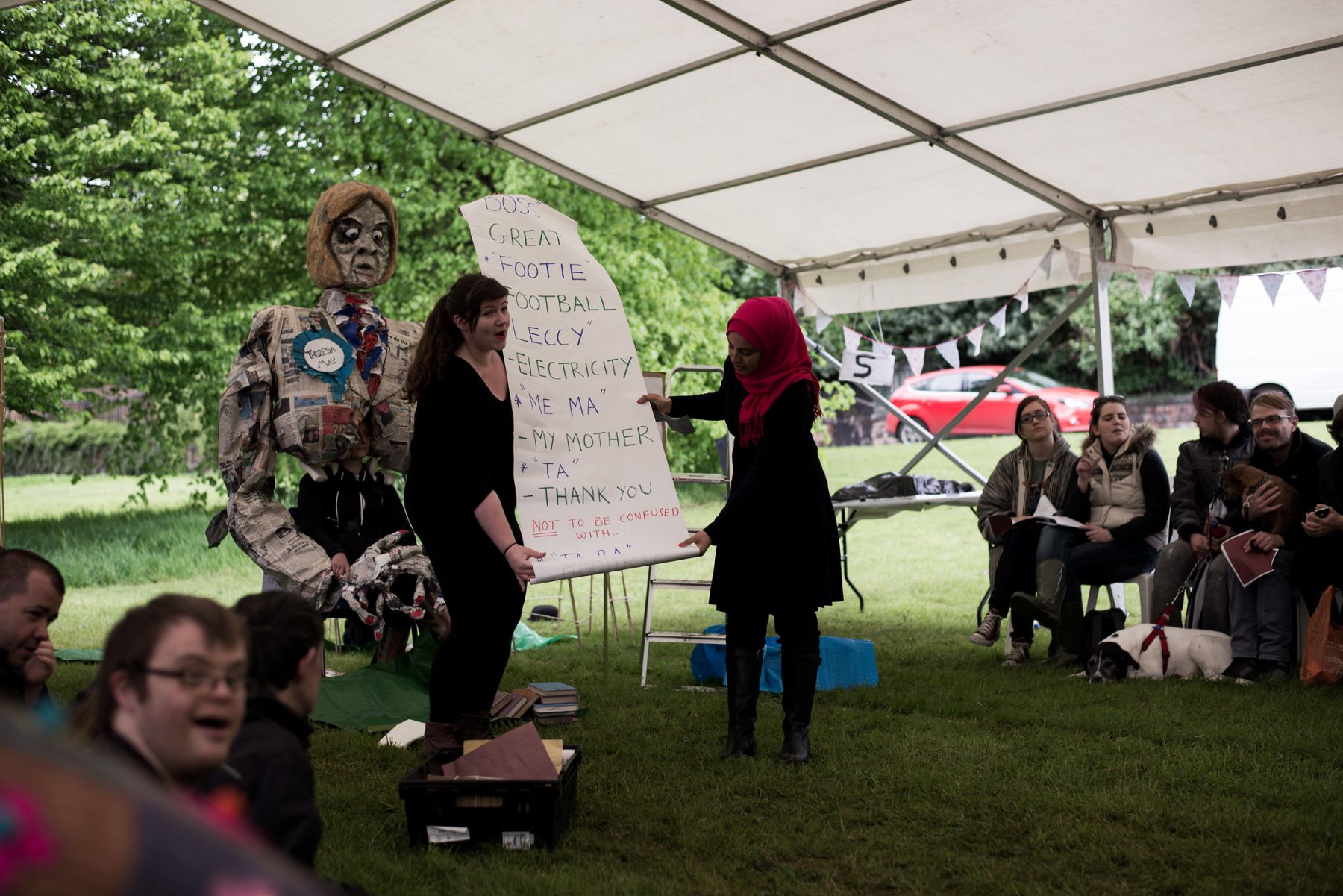
This course will not be running in September 2025.
Our course recognises theatre’s potential to bring about social change. We want you to be an accomplished facilitator, director and theatre practitioner. Someone capable of creating meaningful drama for, with and by different communities.
In this highly practical course, you collaborate with community groups, charities and the voluntary sector as you learn.
Accredited By:

What You Will
Study
Facilitation: Presence, Play and Purpose
This module focuses on the fundamentals of drama facilitation. You explore the constituent parts of the drama workshop and develop individual practical skills in designing and leading games and exercises as you start to develop your own facilitation style. Through case studies you are introduced to different methods, practices and pathways. You undertake a placement with a community group in a mainly observational role as you study its needs before proposing hypothetical workshops and activities.
Directing: Politics, Poetics and Possibility
In this module you begin your journey as a director by exploring and applying techniques to create theatre for social or political impact. In addition, you hone your understanding of the director’s role in creating visual narratives. Project work includes adapting a well-known novel with a view to encouraging a critical response from the audience.
Storyteller: Myth, Story and Society
This module focuses on the social function of stories, and how they are expressed through theatre and related performing arts. You explore the ways in which stories have, and continue, to be used to communicate, engage, shape perceptions and even manipulate social values. The module also includes voice work where your strengths and limitations are explored as you are encouraged to find and free your natural voice.
Practitioner: Performance and Creativity
This module aims to give you a foundation of acting and performance skills to support your development as a theatre practitioner within the broad spectrum of applied theatre and community drama. Project work centres on a production for young people. Using a text specifically written or adapted for a young audience, the performance is an opportunity for you to put the theory, skills and experience gained over the module into practice.
Facilitation: Transformation, Flow and Synthesis
In this module you expand your facilitation practice to create participatory workshops with the potential to transform understanding through the use of criticality and creativity. These skills are applied to real world projects developed in the Storyteller and Practitioner project modules at this level and include delivering a week-long drama-based residency in a primary school.
Directing: Realising Scripted and Devised Theatre
This module centres on the two key modes of work as a director: the creation of dramatic performance from an existing script and the ways in which directors can organise, shape and form devised work when working with an ensemble. To finish you articulate a director’s concept and develop key planning documents for a Youth Theatre production. The module culminates in you directing a scene from the production in an observed rehearsal with a group of young people.
Storyteller: Counter Narratives and Community Performance
This module continues the exploration of the power of story begun in your first year but now expands its focus to the presence of dominant and counter narratives in contemporary culture. Central to this is the concept of ‘responsible story telling’, recognising the power of narrative to shape perceptions of space, place and identity and the responsibility this places on facilitators when working in community contexts. The project culminates in a large-scale community performance exploring a ‘hidden history’ or other counter-narrative.
Practitioner: Theatre, Drama and Education
This module offers you the opportunity to apply your facilitating, directing, storytelling and performance skills as a Theatre in Education practitioner. After a period exploring a range of educational drama concepts and practices, you devise, rehearse and deliver participatory drama work in a formal education setting.
Theatre for Democracy, Health and Environmental Advocacy
This module aims to provide a solid theoretical and practical foundation in the use of theatre and drama as a means of advocacy and/or consultation in local democracy and health contexts. Under supervision you work with a community group on a weekly basis to produce a piece of participatory theatre for democracy that presents the participants’ concerns to an audience of local politicians and decision makers.
Relevancy, Realisation and Repertoire: The Pillars of Professional Practice
This module focuses on the key processes that support professionals as a facilitator/director. You explore how to keep your work relevant, build a repertoire of drama workshops to underpin your practice and realise your professional goals and ambitions by choosing formal business structures and preparing funding bids and job applications.
Launchpad: Individual Final Project
This module provides you with the opportunity to create and evaluate a project from conception to completion. It also encourages you to augment your practice and develop your skills in reasoning and argument through a paper that critiques the effectiveness of your project.
How You Will
Study
-
Practical Workshops
-
Supervised projects with community groups
-
Independent community-based projects
-
Independent study
-
Group Work
-
Lectures
-
Tutorials
-
Masterclass
System.AggregateException: One or more errors occurred. (Object reference not set to an instance of an object.) ---> System.NullReferenceException: Object reference not set to an instance of an object. at AspNetCore.Views_Partials_grid_editors_DocTypeGridEditor_howYouWillBeAssessedCourse.ExecuteAsync() in C:\inetpub\wwwroot\lipa\Views\Partials\grid\editors\DocTypeGridEditor\howYouWillBeAssessedCourse.cshtml:line 0 at Microsoft.AspNetCore.Mvc.Razor.RazorView.RenderPageCoreAsync(IRazorPage page, ViewContext context) at Microsoft.AspNetCore.Mvc.Razor.RazorView.RenderPageAsync(IRazorPage page, ViewContext context, Boolean invokeViewStarts) at Microsoft.AspNetCore.Mvc.Razor.RazorView.RenderAsync(ViewContext context) at Microsoft.AspNetCore.Mvc.ViewComponents.ViewViewComponentResult.ExecuteAsync(ViewComponentContext context) at Microsoft.AspNetCore.Mvc.ViewComponents.DefaultViewComponentInvoker.InvokeAsync(ViewComponentContext context) at Microsoft.AspNetCore.Mvc.ViewComponents.DefaultViewComponentHelper.InvokeCoreAsync(ViewComponentDescriptor descriptor, Object arguments) --- End of inner exception stack trace --- at System.Threading.Tasks.Task.ThrowIfExceptional(Boolean includeTaskCanceledExceptions) at System.Threading.Tasks.Task`1.GetResultCore(Boolean waitCompletionNotification) at Our.Umbraco.DocTypeGridEditor.Helpers.DocTypeGridEditorHelper.RenderDocTypeGridEditorItem(IViewComponentHelper helper, IHtmlHelper htmlHelper, IPublishedElement content, String editorAlias, String viewPath, String previewViewPath, Boolean isPreview) at Our.Umbraco.DocTypeGridEditor.Helpers.DocTypeGridEditorHelper.RenderDocTypeGridEditorItem(IViewComponentHelper helper, IHtmlHelper htmlHelper, Object model) at AspNetCore.app_plugins_doctypegrideditor_render_doctypegrideditor.ExecuteAsync() in C:\inetpub\wwwroot\lipa\app_plugins\doctypegrideditor\render\doctypegrideditor.cshtml:line 4 at Microsoft.AspNetCore.Mvc.Razor.RazorView.RenderPageCoreAsync(IRazorPage page, ViewContext context) at Microsoft.AspNetCore.Mvc.Razor.RazorView.RenderPageAsync(IRazorPage page, ViewContext context, Boolean invokeViewStarts) at Microsoft.AspNetCore.Mvc.Razor.RazorView.RenderAsync(ViewContext context) at Microsoft.AspNetCore.Mvc.ViewFeatures.HtmlHelper.RenderPartialCoreAsync(String partialViewName, Object model, ViewDataDictionary viewData, TextWriter writer) at Microsoft.AspNetCore.Mvc.ViewFeatures.HtmlHelper.PartialAsync(String partialViewName, Object model, ViewDataDictionary viewData) at AspNetCore.Views_Partials_grid_editors_base.ExecuteAsync() in C:\inetpub\wwwroot\lipa\Views\Partials\grid\editors\base.cshtml:line 11
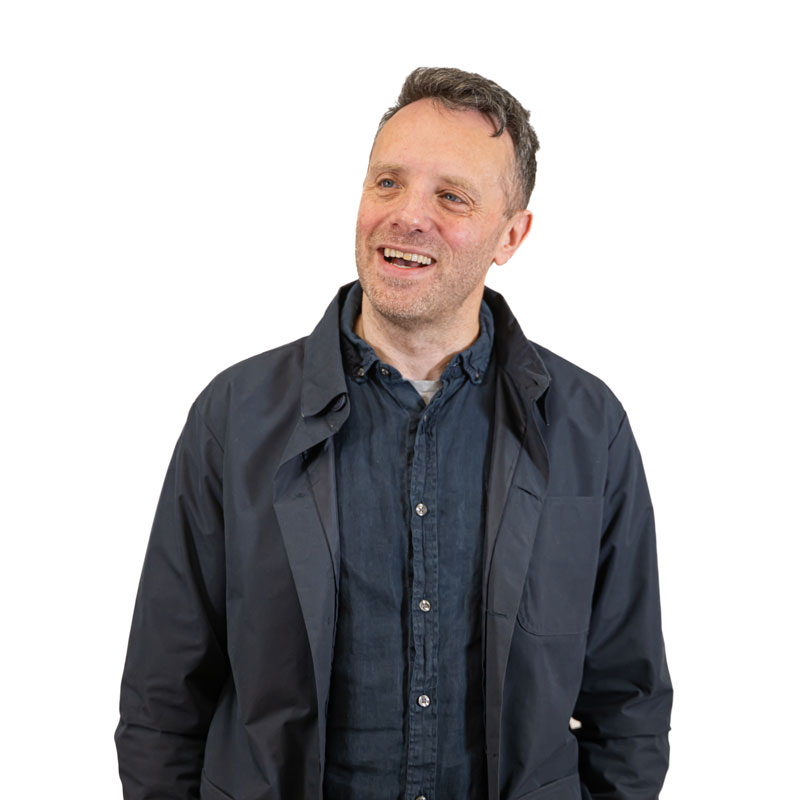
David Salter
Head of Acting
David is an award-winning theatre director and acting teacher.
Previously he has taught and directed at a number of drama schools including RADA, Mountview, Rose Bruford College, Drama Centre, The American Academy of Performing Arts, New National Theatre Drama Studio, Tokyo and the Manchester School of Theatre, where he led the Acting Programme.
David attended the Director’s Course at the Royal National Theatre Studio and has directed productions across the UK and internationally, including Brecht’s The Life of Galileo at the Studio Theatre, Washington DC. David was associate director to Peter Stein on David Harrower’s Blackbird at the Edinburgh International Festival, to Howard Barker on his production of Scenes From An Execution at the Barbican and on numerous productions at the Almeida Theatre including Richard II with Ralph Fiennes and the world premiere of The Shape of Things with Rachel Weisz and Paul Rudd.
publications
Contributor to ‘Actor Trainers on Acting: For The Twenty First Century’ Edited by Professor Anna McNamara for Routledge (upcoming)
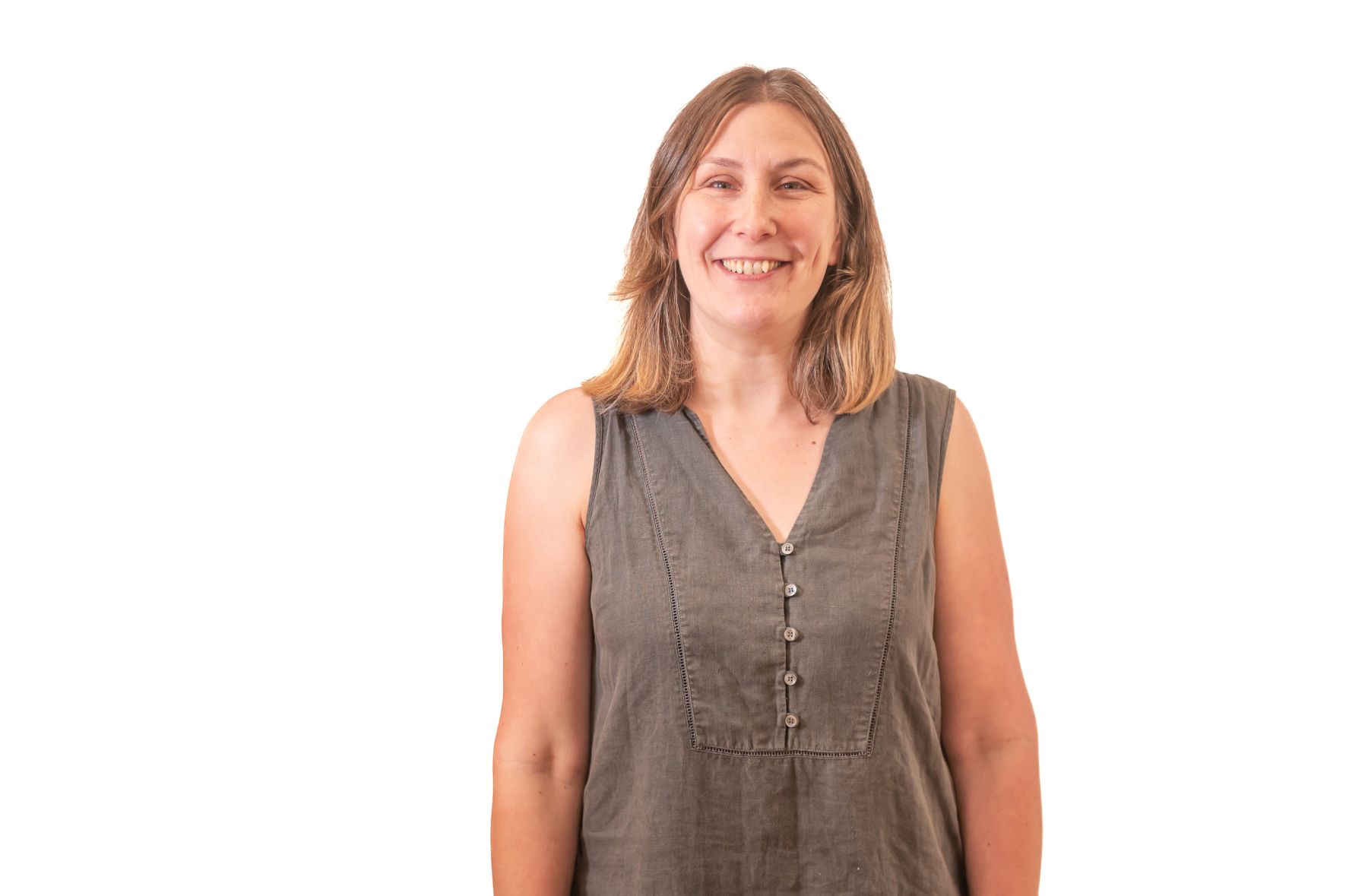
Gillian Knox
Lecturer
Gillian is a highly experienced devised performance maker and artist, having worked in the sector for over 15 years. She is a founder member of the critically acclaimed Pigeon Theatre, which specialises in experimental, site-specific and interactive works and was an associate artist at Manchester’s Greenroom Theatre. Gillian’s current research is practice-led and focuses on applying documentary and verbatim techniques to creating fictive performances. Gillian believes that the best way to learn is through actually making work, enhanced by a firm understanding of critical theory and current practice and consolidated by critical reflection.
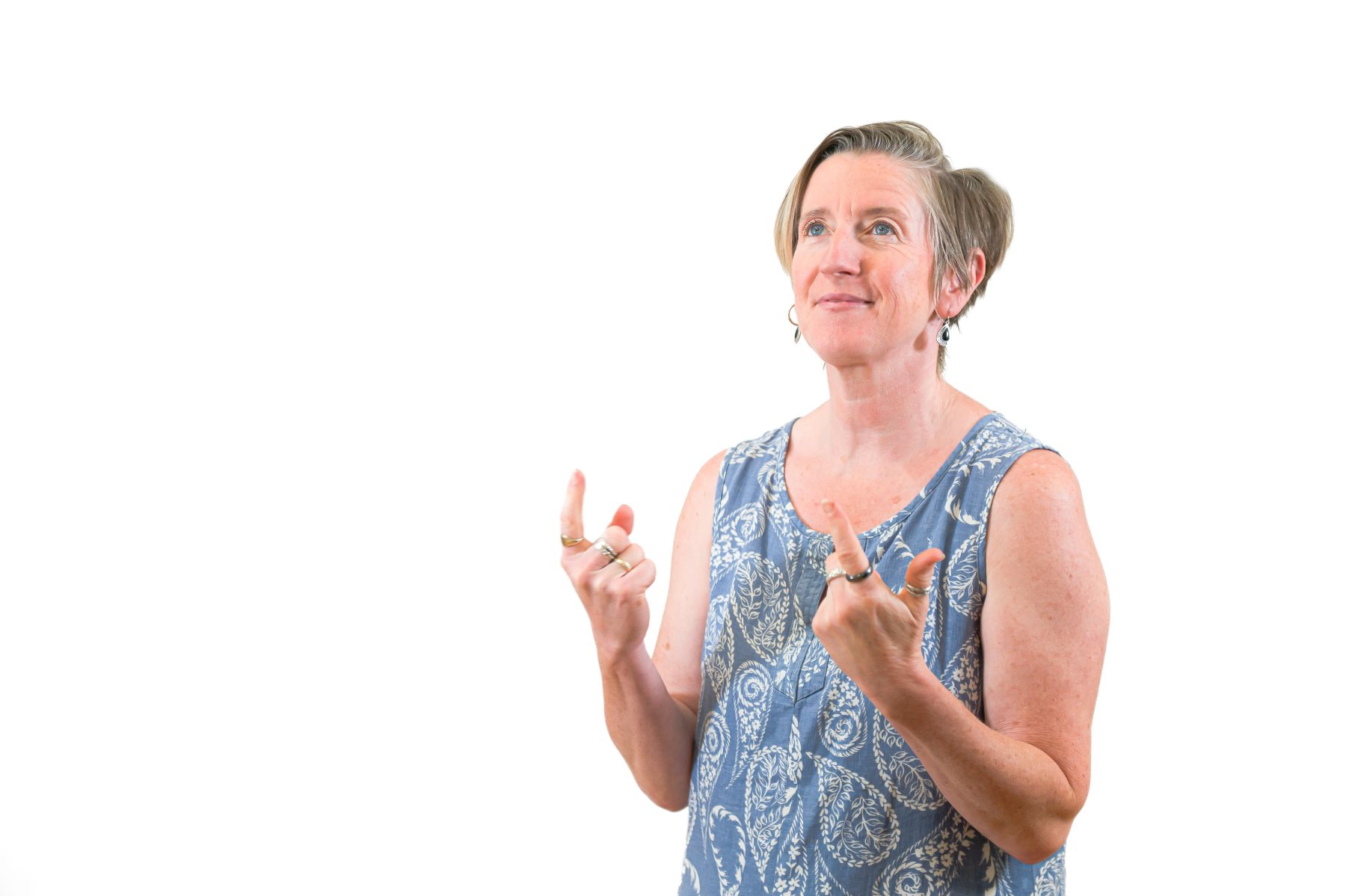
Lisi Perry
Lecturer
Lisi has been a practising dance artist for over 25 years and is the founder and artistic director of COLLISION. She has worked with choreographers and companies including Scottish Dance Theatre, Motionhouse Dance Theatre and Jasmin Vardimon, touring and teaching regionally, nationally and internationally. Lisi directs and choreographs work in theatre and unconventional non-theatre spaces, including large-scale projects on beaches, in museums, police stations and parks, and has even involved JCB diggers. She encourages students to be fully engaged with a range of methodologies and approaches, whether they are familiar or unknown, and to immerse themselves in all aspects of their study.

Rosemary Berkon
Teaching Fellow
Rosemary is an actor, voice coach and community facilitator. She trained as an actor at ALRA and as a voice coach at The Royal Central School of Speech and Drama. As an actor Rosemary has toured nationally, performing at venues such as HOME theatre, The Leeds Playhouse, Theatre 503, The North Wall Arts Centre and Manchester Opera House. With a passion for new writing and outreach she has worked as a performer and facilitator to create original work that emphasises community engagement with various theatre companies including Odd Arts, Papatango, Quantum Theatre and Byteback Theatre.
She brings her experience as a performer and facilitator into her teaching, alongside her experience as a private coach, which sees her work with many different voices encouraging confidence and communication. She currently works with clients in preparation for auditions, public speaking (that has included TEDx talks) and at other drama schools.
Rosemary is fascinated by accents, how speech is made and the social implications of teaching this to actors. She is a member of The Voice and Speech Trainers Association, passionate about cutting-edge pedagogy and aims to work with a sense of community and inclusivity in her studio spaces.
Rosemary understands the resilience required to sustain a career in the theatre industry, she endeavours to share with honesty challenges from her professional experience and also her hopes for the future of the creative arts.

Dr Sam McKay
Lecturer
Samuel works across a number of exciting fields in the arts and culture sector, in recent years with organisations like Leeds Playhouse, Pockets Theatre, Chol Theatre, fairandfunky, Faceless Arts, Front Room Productions, and Red Ladder Theatre. He trained in Community Drama at LIPA (2014), before achieving an MA at Durham University in Culture and Difference (2015). He now holds a PhD from the University of Leeds (2019), where his research developed philosophies of applied theatre practice.
His main interests and experience lie in applied theatre and community arts, site specific theatre, queer theatre, and the development of new shows. He has led a significant amount of projects with refugees and asylum seekers, schools and young people, and developed innovative creative projects for older people. Beyond this he has skills and experience in project management, directing for non-traditional spaces, marketing and audience development, creative outreach, and monitoring and evaluation processes. He continues to make creative work with communities across the north of England and generates new ways of thinking through his research.
Samuel leads and delivers a number of modules that look to develop professional skills that will foster sustained work and employment beyond graduation, alongside their acting and performance skills as they relate to applied theatre practice. Some of these modules are project based, for example Theatre in Education, where he prepares students to work with young people in Merseyside in the delivery of their own participatory performances.
McKay, S. (2019) Dislocating Applied Theatre: Crossing the Borders between Practice and Context. PhD thesis, University of Leeds.
McKay, S. & Bradley, J. (2016). How does arts practice engage with narratives of migration from refugees? Lessons from ‘utopia’. Arts and Communities, Special Edition Arts, Activism and Human Rights, 8(1-2), pp.31-46.
What Our
Graduates Do
Our graduates work in theatre outreach programmes, prisons/probation service and within the education, youth and social work networks. Their career achievements have included:
Holly Campbell (2018)
Arts facilitator for indigenous community groups in New South Wales, Australia
Liam Smaje (2018)
Facilitator and workshop leader, he has worked with schools, refugees in Greece and ex-offenders.
Jake Liken (2016)
Founder, Community Objectives CIC
Florence McCudden (2016)
Outreach caseworker and kindergarten teacher in Ghana.
Shannon Merwick (2016)
Restorative justice facilitator at Remedi, Derbyshire.
Shannon Wild (2015)
Activities coordinator at a Liverpool care home for elderly people with dementia and director with Musical Youth.
Annie Neat Farnfield (2016)
Drama youth arts coordinator with Merseyside Youth Association
Ferne Collins (2015)
Runs her own Footlights theatre schools
Megan Hopper-Layton (2015)
Creative associate at Seven Stories, the National Centre for Children’s Books. Seven Stories won Best Lockdown Project at the 2020 Museums Change Lives Awards.
Asha Richardson (2015)
Runs charity Ankoma Outreach connecting schools in the UK and Ghana. She also runs a Razzmatazz theatre school in Penrith.
Kacey Baker (2014)
Activities coordinator with Cheshire Young Carers.
Machteld De Ruyck (2014)
Older peoples’ manager, Leeds Playhouse
Gwennan Mair Jones (2014)
Director of creative engagement at Theatr Clwyd, which won The Stage Regional Theatre of the Year Award for 2021 for its work during lockdown. She is also a member of Arts Council of Wales.
Educational qualifications are important but limited in what they can tell us about you.
Your natural ability, your fit with what and how we teach, your growth and your potential are also key factors in our admission process. We can’t evaluate these solely on your educational achievements, so no matter which course you are applying for, we look for the following attributes on your application and at the interview stage.
Additional Costs
As part of this course, there are likely to be some additional costs that are not included within your tuition fees. Many of these are optional. We’ve also included information about cost of living expenses in Liverpool in this section.
Books and equipment
All of the key texts for the course can be found in our Learning Resources Centre (LRC). There are, however, a couple of books that it may be useful to have a look at in preparation for starting the course. It is not compulsory to buy these but they will provide a good overview of some of the current issues in the field. We’ll send you recommendations for these before you enrol.
Classes will often involve practical activities and so it is important to bring clothing that you can move easily and comfortably in, for example joggers/leggings and a T-shirt. A set of blacks is also required - this is simply a set of plain clothes (joggers/leggings & T-shirt) with no logos, all in black. You should also have a pair of lace-up trainers for movement classes.
As a facilitator it is good practice to wear a wristwatch – it looks much more professional than checking the time on a mobile phone. A clear and easy to read watch is an everyday essential on the programme.
DBS check
An essential part of your studies involves placements with specific community groups. In order to facilitate your placements, you will have to undertake a criminal record check processed through the Disclosure and Barring Service (DBS). As your placements may include working with children and/or vulnerable adults you will need an ‘Enhanced’ DBS check. We will process your Enhanced DBS check but you will need to pay the processing fee of £58 in order for us to do so. This was the fee for 2022 entry so may be subject to a small inflationary increase.
Class trips
As part of the various modules on the programme, some class trips may be offered to help support your learning. These are not compulsory, and whilst some trips may be free or subsidised, you may be required to cover some costs yourself. The opportunities offered will be different each year but past trips have included theatre visits, conferences and a tour of the Houses of Parliament.
In your third year, there is also usually the opportunity to take part in a class trip to Greece to work with students and community groups affiliated with the Hellenic Theatre/Drama Education Association (TENet-Gr). This is not compulsory, but if you do choose to take part you will have to make a contribution to the cost of your flights and accommodation. You should also factor in the cost of food and any other activities you may want to take part in while exploring Athens.
Cost of living
Wherever you choose to study, you'll have to budget for accommodation and other everyday living expenses, such as food and bills.
Liverpool is one the UK's cheapest student cities. Accommodation costs are relatively low, particularly compared to the south east of England, and the city's shops and entertainment venues also have lots of student discounts.
We’d recommend completing a simple budget plan to predict your income and outgoings. This should include accommodation, bills, insurance, TV licence, food, laundry, clothes, books, travel and socialising. How much you'll want to spend on a lot of these is completely personal.
There is lots of advice available online about budgeting:
- UCAS budget calculator is a great tool to help you balance your in-comings and out-goings.
- SaveTheStudent provides useful information on student money resources, including loans, budgeting, and scholarship sources.
Most UK students will be able to take out a maintenance loan to assist with living costs and there are some grants available. We also offer some bursaries. To find out more, please see Student Finance and bursaries.
Because our courses are intensive and we have a busy season of student performances, options for part-time work during our teaching periods can be limited. However, many of our students gain flexible part-time work, in performance venues, shops, restaurants and bars. We also provide casual work opportunities for our students ranging from stewarding work on our productions to working with young people to help us widen access to our courses. The long summer break is when many of our students choose to work
Additional Costs
As part of this course, there are likely to be some additional costs that are not included within your tuition fees. Many of these are optional. We’ve also included information about cost of living expenses in Liverpool in this section.
Books and equipment
All of the key texts for the course can be found in our Learning Resources Centre (LRC). There are, however, a couple of books that it may be useful to have a look at in preparation for starting the course. It is not compulsory to buy these but they will provide a good overview of some of the current issues in the field. We’ll send you recommendations for these before you enrol.
Classes will often involve practical activities and so it is important to bring clothing that you can move easily and comfortably in, for example joggers/leggings and a T-shirt. A set of blacks is also required - this is simply a set of plain clothes (joggers/leggings & T-shirt) with no logos, all in black. You should also have a pair of lace-up trainers for movement classes.
As a facilitator it is good practice to wear a wristwatch – it looks much more professional than checking the time on a mobile phone. A clear and easy to read watch is an everyday essential on the programme.
DBS check
An essential part of your studies involves placements with specific community groups. In order to facilitate your placements, you will have to undertake a criminal record check processed through the Disclosure and Barring Service (DBS). As your placements may include working with children and/or vulnerable adults you will need an ‘Enhanced’ DBS check. We will process your Enhanced DBS check but you will need to pay the processing fee of £58 in order for us to do so. This was the fee for 2022 entry so may be subject to a small inflationary increase.
Class trips
As part of the various modules on the programme, some class trips may be offered to help support your learning. These are not compulsory, and whilst some trips may be free or subsidised, you may be required to cover some costs yourself. The opportunities offered will be different each year but past trips have included theatre visits, conferences and a tour of the Houses of Parliament.
In your third year, there is also usually the opportunity to take part in a class trip to Greece to work with students and community groups affiliated with the Hellenic Theatre/Drama Education Association (TENet-Gr). This is not compulsory, but if you do choose to take part you will have to make a contribution to the cost of your flights and accommodation. You should also factor in the cost of food and any other activities you may want to take part in while exploring Athens.
Cost of living
Wherever you choose to study, you'll have to budget for accommodation and other everyday living expenses, such as food and bills.
Liverpool is one the UK's cheapest student cities. Accommodation costs are relatively low, particularly compared to the south east of England, and the city's shops and entertainment venues also have lots of student discounts.
We’d recommend completing a simple budget plan to predict your income and outgoings. This should include accommodation, bills, insurance, TV licence, food, laundry, clothes, books, travel and socialising. How much you'll want to spend on a lot of these is completely personal.
There is lots of advice available online about budgeting:
- UCAS budget calculator is a great tool to help you balance your in-comings and out-goings.
- SaveTheStudent provides useful information on student money resources, including loans, budgeting, and scholarship sources.
Most UK students will be able to take out a maintenance loan to assist with living costs and there are some grants available. We also offer some bursaries. To find out more, please see Student Finance and bursaries.
Because our courses are intensive and we have a busy season of student performances, options for part-time work during our teaching periods can be limited. However, many of our students gain flexible part-time work, in performance venues, shops, restaurants and bars. We also provide casual work opportunities for our students ranging from stewarding work on our productions to working with young people to help us widen access to our courses. The long summer break is when many of our students choose to work
System.AggregateException: One or more errors occurred. (Object reference not set to an instance of an object.) ---> System.NullReferenceException: Object reference not set to an instance of an object. at Umbraco.Extensions.PublishedContentExtensions.Url(IPublishedContent content, IPublishedUrlProvider publishedUrlProvider, String culture, UrlMode mode) at AspNetCore.Views_Partials_grid_editors_DocTypeGridEditor_applyCourse.ExecuteAsync() in C:\inetpub\wwwroot\lipa\Views\Partials\grid\editors\DocTypeGridEditor\applyCourse.cshtml:line 26 at Microsoft.AspNetCore.Mvc.Razor.RazorView.RenderPageCoreAsync(IRazorPage page, ViewContext context) at Microsoft.AspNetCore.Mvc.Razor.RazorView.RenderPageAsync(IRazorPage page, ViewContext context, Boolean invokeViewStarts) at Microsoft.AspNetCore.Mvc.Razor.RazorView.RenderAsync(ViewContext context) at Microsoft.AspNetCore.Mvc.ViewComponents.ViewViewComponentResult.ExecuteAsync(ViewComponentContext context) at Microsoft.AspNetCore.Mvc.ViewComponents.DefaultViewComponentInvoker.InvokeAsync(ViewComponentContext context) at Microsoft.AspNetCore.Mvc.ViewComponents.DefaultViewComponentHelper.InvokeCoreAsync(ViewComponentDescriptor descriptor, Object arguments) --- End of inner exception stack trace --- at System.Threading.Tasks.Task.ThrowIfExceptional(Boolean includeTaskCanceledExceptions) at System.Threading.Tasks.Task`1.GetResultCore(Boolean waitCompletionNotification) at Our.Umbraco.DocTypeGridEditor.Helpers.DocTypeGridEditorHelper.RenderDocTypeGridEditorItem(IViewComponentHelper helper, IHtmlHelper htmlHelper, IPublishedElement content, String editorAlias, String viewPath, String previewViewPath, Boolean isPreview) at Our.Umbraco.DocTypeGridEditor.Helpers.DocTypeGridEditorHelper.RenderDocTypeGridEditorItem(IViewComponentHelper helper, IHtmlHelper htmlHelper, Object model) at AspNetCore.app_plugins_doctypegrideditor_render_doctypegrideditor.ExecuteAsync() in C:\inetpub\wwwroot\lipa\app_plugins\doctypegrideditor\render\doctypegrideditor.cshtml:line 4 at Microsoft.AspNetCore.Mvc.Razor.RazorView.RenderPageCoreAsync(IRazorPage page, ViewContext context) at Microsoft.AspNetCore.Mvc.Razor.RazorView.RenderPageAsync(IRazorPage page, ViewContext context, Boolean invokeViewStarts) at Microsoft.AspNetCore.Mvc.Razor.RazorView.RenderAsync(ViewContext context) at Microsoft.AspNetCore.Mvc.ViewFeatures.HtmlHelper.RenderPartialCoreAsync(String partialViewName, Object model, ViewDataDictionary viewData, TextWriter writer) at Microsoft.AspNetCore.Mvc.ViewFeatures.HtmlHelper.PartialAsync(String partialViewName, Object model, ViewDataDictionary viewData) at AspNetCore.Views_Partials_grid_editors_base.ExecuteAsync() in C:\inetpub\wwwroot\lipa\Views\Partials\grid\editors\base.cshtml:line 11
View the programme specification on the LJMU course catalogue here

